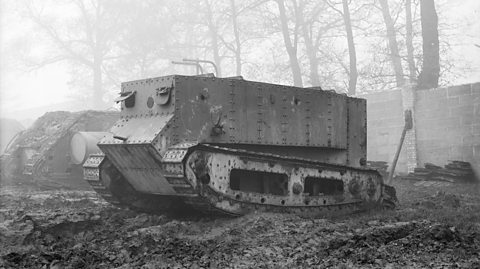Why were empires important?
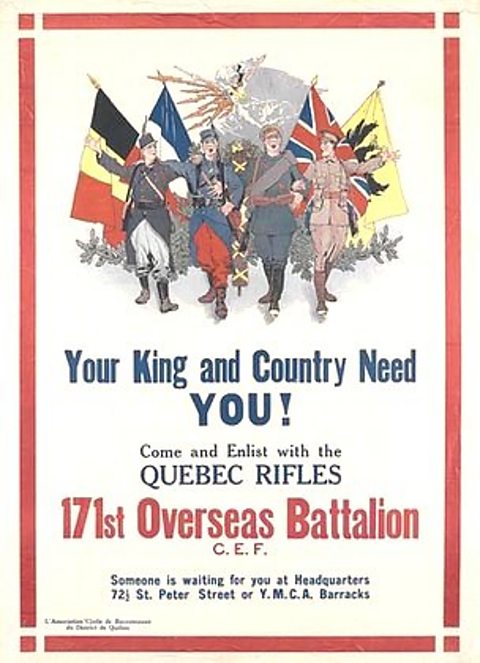
The war involved people from all over the world.
Great Britain, Germany, Russia and Austria-Hungary all ruled empires. Their colonies sent supplies, food and soldiers to help in the war effort.
Britain's colonies sent over two and a half million men to fight for Britain during the war.
India sent the most soldiers. At that time, India included both Pakistan and Bangladesh.
Colonies as far away as Canada, Australia, New Zealand, South Africa and Rhodesia (which is now Zimbabwe) also sent thousands of soldiers.
That meant that Britain had soldiers from five different continents: Europe, North America, Australasia, Asia and Africa.

Which British Empire countries sent soldiers?
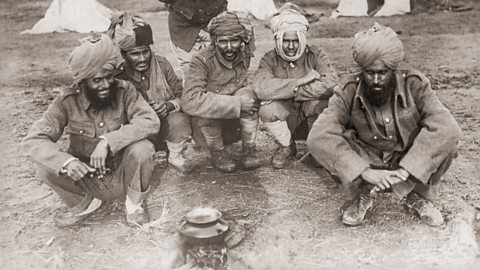
Image caption, India
Indian soldiers serving with the British Army at camp.
Image caption, Canada
Canadian soldiers sleeping and writing letters in a trench.
Image caption, Australia and New Zealand
24th August 1916: Soldiers in the Australian and New Zealand Army Corps with their one-year-old pet kangaroo 'Joey'.
Image caption, South Africa
October 1915: South African soldiers stationed at Bexhill with their baboon mascot.
Image caption, Rhodesia (now Zimbabwe)
September 1915: Rhodesian soldiers getting off a train in the desert in the war in South West Africa.
1 of 5
The Royal Family
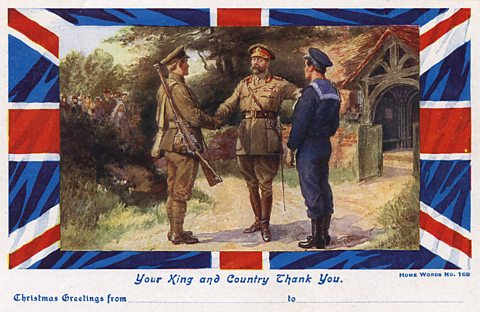
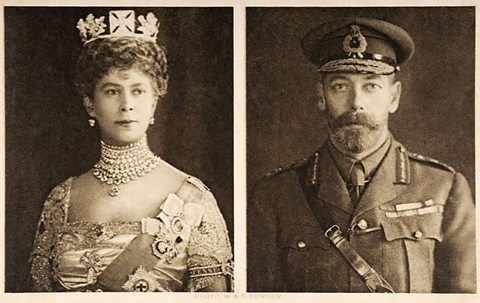
The British Empire was ruled by the Royal Family. It’s the same family that reigns today and the King at the time was Queen Elizabeth II’s Grandfather.
During the war, the Royal Family changed its surname from 'Saxe-Coburg-Gotha' to 'Windsor', which sounded more British.
George V was related to the leaders of Russia, Germany and other European royalty. The name change helped to separate him from them.
Other British royals played a part in the war:
Princess Mary worked as a nurse. For Christmas 1914, she helped arrange for a tin containing tobacco or sweets to be sent to every man in the armed forces.
Edward, Prince of Wales (later King Edward VIII) served in France as a Staff Officer. He was awarded the Military Cross and in 1918 learned to fly. But he was banned from combat in case he was captured by the German Army.
Prince Albert (later King George VI) served in the Navy and Army. He was not heir to the throne at the time so was allowed to take part in combat.
Many people across the Empire looked to the Royal Family, especially King George V, to inspire them and help them to understand why they were fighting.

How many soldiers from the British Empire served?
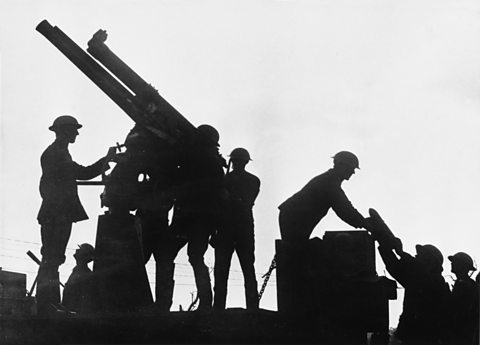
From 'The Statistics of the Military Effort of the British Empire during the Great War 1914-1920':
- Britain: 5,000,000
- India: 1,440,437
- Canada: 628,964
- Australia: 412,953
- South Africa: 136,070
- New Zealand: 128,825
- Other colonies: 134,837

How were soldiers from the Empire treated?
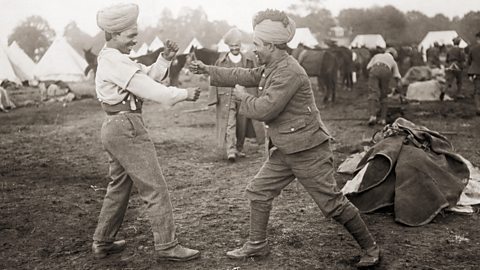
Given that soldiers from around the world came to help in the war effort, you might think that they would be treated with gratitude and at the very least fairly. Sadly, because of what we now call racist views that were held by many in Britain at the time, this wasn’t always the case.
In some ways, the soldiers were treated well. They were allowed to practise their religion and eat according to their beliefs. However, they were not allowed to train as officers and white English nurses were not allowed to treat Indian soldiers.
When the war ended, India was not allowed to govern itself. Restrictions were placed on the press and people’s ability to speak freely under the Rowlatt Act. Eventually, in 1947, it did gain independence from Great Britain.
Independence
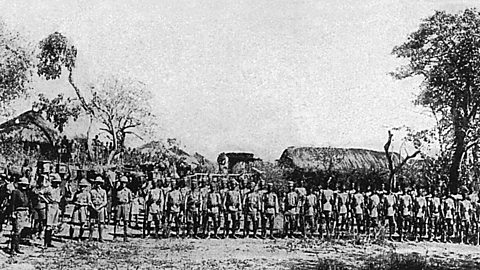
The colonies fought hard to help Britain in the war. But they questioned if they deserved a chance to rule themselves with their own governments.
Britain saw how much these colonies helped during the war and decided that some could be given more freedom once the war ended.
This was a step towards some countries gaining independence.
How were the soldiers remembered?
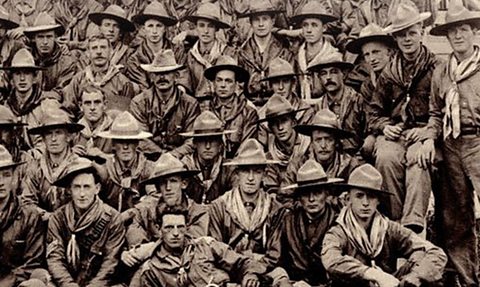
Sadly, the role of the Indian army was not given the same level of publicity as Australian, Canadian or South African soldiers. Their story was largely forgotten from history. With recent work, this is changing so people are becoming more likely to know about the bravery of soldiers from across the empire.
Even though most of the fighting happened in Europe, it's clear to see the impact of the war on people all over the world.
Activities
Activity 1: Quiz – Empires during World War One
Activity 2: History Explorer game
Play this game to test your knowledge and learn even more facts about World War One.
History Explorer: Secrets through time
History Explorer: Secrets through time: KS2 History
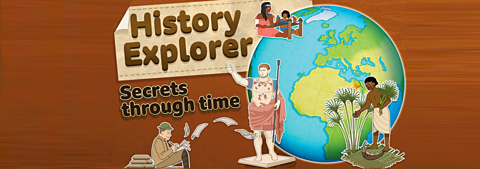
Bitesize Primary games. gameBitesize Primary games
Play fun and educational primary games in science, maths, English, history, geography, art, computing and modern languages.

More on World War One
Find out more by working through a topic
- count3 of 43
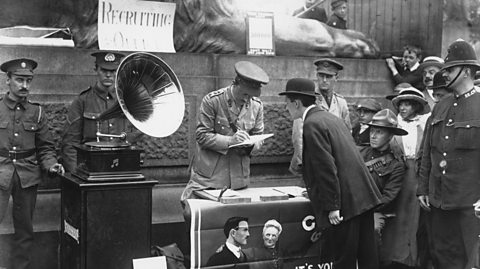
- count4 of 43
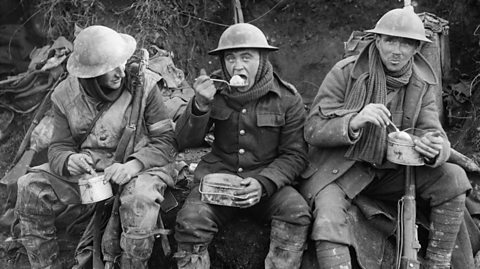
- count5 of 43
